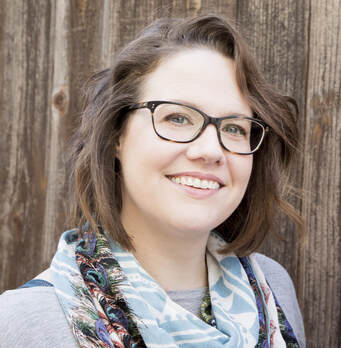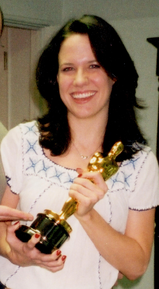Why Work with an Entertainment Industry Specialist?
|
I know firsthand the challenges of being a working professional in Hollywood because I spent many years in film and television development.
|
|
|
It's an identity.
Unfortunately, some people pursue careers in entertainment because they are unconsciously driven to reenact damaging experiences from childhood. And if that's your drive, boy, is this a business designed to let you do that. You may only know that something is “off” about the way that you respond to situations, but I know from years of experience that many Hollywood professionals are affected in ongoing, significant ways by underlying traumatic experiences that they have minimized to themselves and to others, and I have specialized training in trauma treatment if we discover that this also describes you. |
Read on to learn more about me, the services I provide, and how I can help you rise above your past, get unstuck, and live a life you'll love.
Creative People. Creative Solutions.
|
|
You’re not generic. Your therapy shouldn't be either. Every problem is as unique as the person experiencing it, so the solutions need to be individualized, personally relevant, and guided by who you are.
|
Services
Brief Psychotherapy
In brief work, we usually focus on one issue within a limited time frame. The number of sessions will depend on the kind of issue that we choose to address, but brief therapy is commonly 8-12 sessions. These sessions focus on behavioral changes and are directive and solution-focused. Brief therapy rarely results in the deeper healing and self-discovery that complex therapy provides, but it can offer symptom relief and allow you to make real progress in stuck areas of your life.
|
Complex Psychotherapy
Many people come to therapy with a constellation of issues that are interrelated and require time and patience to sort, but symptom relief is still the primary goal. In complex psychotherapy, there may or may not be a focus on specific diagnoses. The work is less predictable than brief psychotherapy as it involves a process of self-discovery where you lead and I follow. Personal growth and behavioral change will occur by deconstructing facades and identifying your values so that you may reconnect with and embrace your real self.
|
"Life Support"
The medicalization of psychotherapy has led many to assume that psychotherapy is only about symptom reduction, but there is a long tradition of providing psychotherapy as a means of self-care and for sustaining health and wellness. You may prefer this approach if you desire a safe, confidential place to give conscious attention to questions about how you’re living your life. This is also an approach that many who have successfully completed brief or complex psychotherapy choose to pursue. This type of therapy is most likely not covered by insurance.
|
Trauma TherapyTraumatic experiences can reorganize your nervous system to be more sensitive to cues of danger and set off your natural alarm system when no danger is present. We commonly refer to this experience as “being triggered.” This effect happens outside of conscious awareness and control, which is why regular “talk therapies” are often ineffective in treating trauma. I may use one or a combination of the following approaches to help you: Attachment-Focused Eye Movement Desensitization and Reprocessing (AF-EMDR), the Trauma Resiliency Model (TRM), and Cognitive Processing Therapy (CPT). These approaches can be integrated into complex psychotherapy, be the sole focus of brief psychotherapy, or done as adjuncts to your work with another therapist.
|
Exposure & Response Prevention
Obsessive Compulsive Disorder (OCD) is the presence of unwanted, intrusive, and repetitive thoughts, images, or urges (obsessions) followed by responses designed to prevent something bad from happening or to make you feel better (compulsions). The drive to follow OCD's rules can be overwhelming, but there is help. Exposure and Response Prevention (ERP) is the gold standard for treating OCD. This treatment is typically 17-20 sessions and can be either its own course of treatment or done as an adjunct to your work with another therapist.
|










